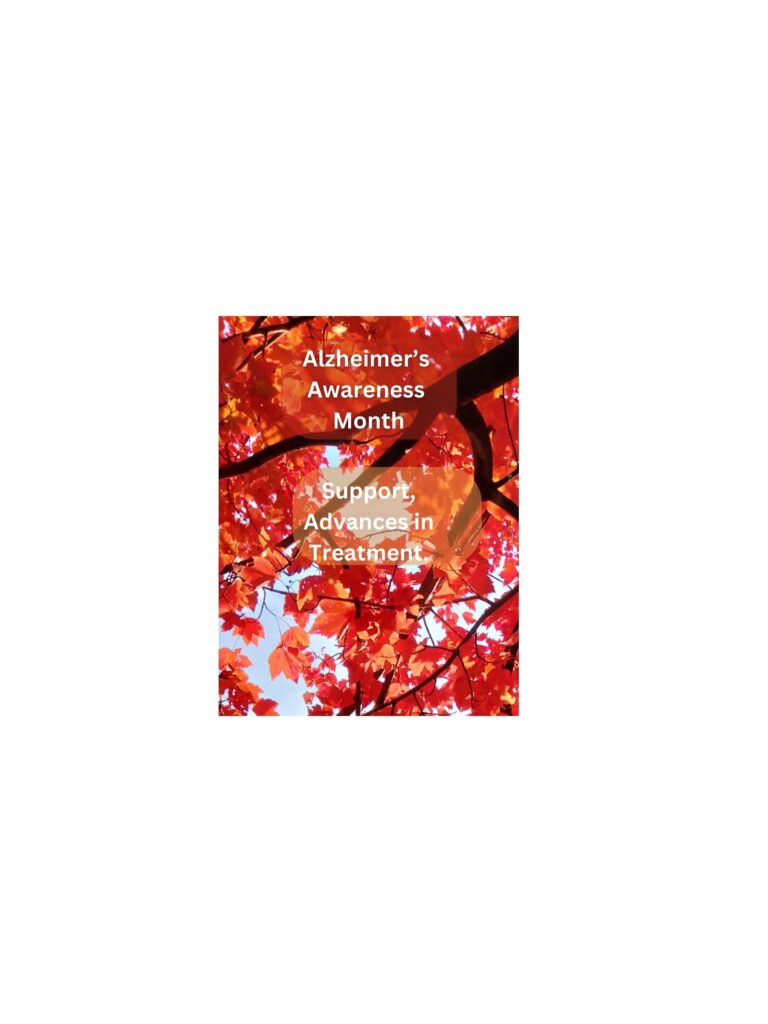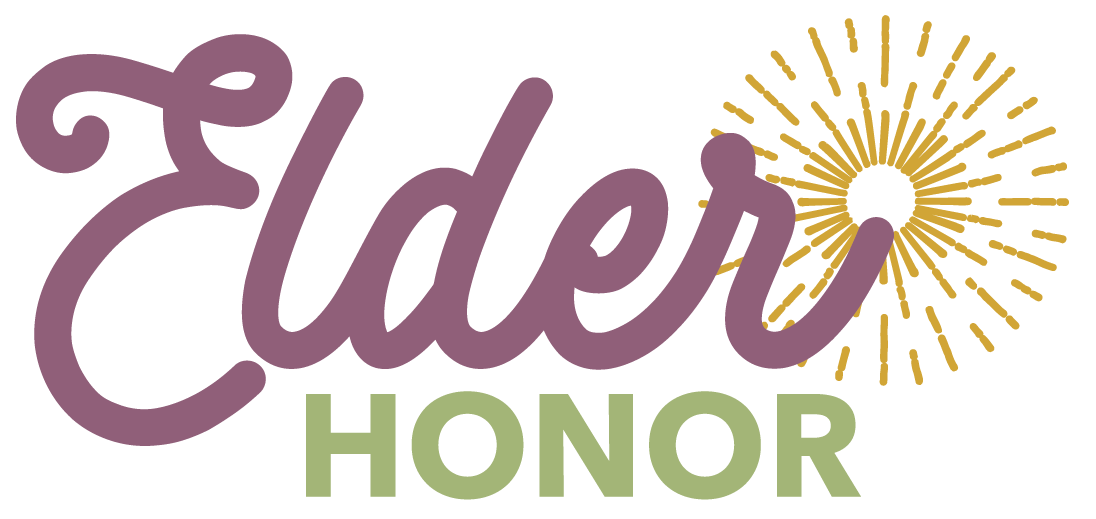
“There are only four kinds of people in the world.
Those who have been caregivers.
Those who are currently caregivers.
Those who will be caregivers,
and those who will need a caregiver.”
― Rosalyn Carter
https://rosalynncarter.org
This is the last part in a series to raise awareness about Alzheimer’s disease. In the previous parts, I reviewed who discovered the disease, Alois Alzheimer, in 1906. I then listed several celebrities who died from it and how to care for someone with the disease. In Part Two, I reviewed symptoms and risk factors that increase the probability of getting the disease, followed by some treatments. Part Three again listed some strategies on caring, the influence of nutrition, and a book to read on ways to put into practice talking to and caring for someone with the disease.
In this final part, I will list some resources you can access as a caregiver to help on this journey. I will also list some newer treatments and point you to other ongoing research to look into and keep up to date. So, let’s start.
Resources and Support
Living with Alzheimer’s disease or caring for someone with the condition can be overwhelming, but you are not alone. Caring for two family members alongside my wife and working with others can be challenging. Depending on where your loved one is on the spectrum, you will experience moments of clarity and, the subsequent second, complete confusion. As your loved one continues, you will see less of their personality locked up in their body. This is difficult for anyone to experience.
Know that many have gone before you and have tools, methods, and comfort if and when you need help. You have to reach out to them to get that help.
Below is information about resources and support networks available to individuals and families affected by Alzheimer’s disease.
1. Alzheimer’s Associations
Numerous Alzheimer’s associations provide information, support, and resources for individuals living with the disease and their caregivers. These organizations offer guidance on various aspects, including diagnosis, treatment options, caregiving strategies, and research updates. Some prominent Alzheimer’s associations include:
– Alzheimer’s Association (alz.org)
– Alzheimer’s Society (alzheimers.org.uk)
– Alzheimer’s Disease International (adi.org)
2. Alzheimer’s.gov
Offers reliable resources on Alzheimer’s disease and related dementias, providing important information about care and support. The website provides tips for caregivers and family members, including information on home safety, caregiver health, and responding to changes in communication and behavior. https://www.alzheimers.gov/life-with-dementia/resources-caregivers
3. National Institute on Aging (NIA)
Provides supportive resources for Alzheimer’s caregiving, including information on home care, adult day care, meal services, and comfort care at the end of life. The NIA Information Center offers free publications about aging, many of which are available in both English and Spanish. https://www.nia.nih.gov/health/getting-help-alzheimers-caregiving
4. Alzheimer’s Foundation of America
Offers information about caring for people with Alzheimer’s and a list of services for individuals with the disease. The foundation provides a hotline, publications, and other educational materials to support caregivers and their families. https://www.alz.org/help-support/caregiving
5. Eldercare Locator
Offers a phone service to connect individuals with local programs and services for Alzheimer’s caregiving. It provides information about services that can help care for a person with Alzheimer’s at home and can assist in finding out if these services are offered in a specific area. https://eldercare.acl.gov/Public/Index.aspx
6. Alzheimer’s Disease Caregiver Support Initiative
Provides free Alzheimer’s disease and dementia caregiver support in the northeastern region of Upstate New York. The initiative connects caregivers with local programs and services, including support groups, memory cafés, and education and training. https://www.wehelpcaregivers.com
7. Helplines and Hotlines:
Helplines and hotlines offer immediate assistance, guidance, and a listening ear for individuals in crisis or seeking information about Alzheimer’s disease. Here are a few helplines that provide valuable support:
– Alzheimer’s Association Helpline: 1-800-272-3900 (24/7)
– Alzheimer’s Society National Dementia Helpline (UK): 0300 222 1122 (Monday to Wednesday, Friday: 9 am to 8 pm; Thursday: 9 am to 5 pm)
8. Area Agency on Aging
Every county in the US has a government-funded agency focused on providing assistance to those in need. These agencies mainly serve lower-income people but have numerous resources available to everyone beyond caring for someone with Alzheimer’s because other challenges arise from getting old. I’ll spare you the details! US Aging: https://www.usaging.org/
These agencies and organizations provide valuable information, resources, and support for individuals caring for loved ones with Alzheimer’s, offering assistance at various stages of caregiving and addressing a wide range of needs.
Treatments and Research
Treatments
The latest treatments for Alzheimer’s disease focus on targeting amyloid protein to slow down the progression of the disease. Donanemab, Aducanumab, Lecanemab, and Hydralazine are promising drugs being tested in clinical trials, with some already approved for treatment or in advanced trial stages. These treatments bring hope for addressing the unmet medical need for Alzheimer’s disease.
Donanemab
– Trial: The TRAILBLAZER-ALZ2 trial tested donanemab, an immunotherapy drug, on 1,182 people with amyloid in their brains and memory and thinking problems.
– Conducted by Eli Lilly.
– Clinical Stage: Large final stage trial (TRAILBLAZER-ALZ2) [1].
– Expected Market Release: Not specified.
– Focus of the Study: Slowing the progression of Alzheimer’s disease by targeting amyloid protein.
Aducanumab (Aduhelm)
– Trial: Aducanumab has been approved for the treatment of Alzheimer’s disease in some people.
– Clinical Stage: Approved for treatment.
– Focus of the Study: Targeting amyloid beta, which forms Alzheimer’s characteristic plaques in the brain.
Lecanemab (Leqembi)
– Trial: Lecanemab underwent a Phase III clinical trial involving 1,795 participants with early-stage, symptomatic Alzheimer’s.
– Conducted by Yale’s Alzheimer’s Disease Research Unit, funded by Eisai.
– Released to the market this past summer (2023).
– Focus of the Study: Slowing clinical decline by targeting amyloid protein.
Hydralazine
– Trial: A phase 3 trial of hydralazine was started in August 2021 and is anticipated to be completed in December 2023.
– Conducted by: Not specified.
– Clinical Stage: Phase 3 trial ongoing.
– Expected Market Release: Not specified.
Research
The National Institute on Aging (NIA) has developed a searchable clinical trials portal where potential research participants can find studies related to Alzheimer’s, other dementias, mild cognitive impairment, cognitive health, and caregiving. This portal provides information on participating in clinical trials and finding and joining clinical trials. Additionally, the NIA-funded Alzheimer’s Disease Research Centers nationwide can give information about the disease, support groups, and clinical trial opportunities. https://www.nia.nih.gov/research/clinical-trials https://jbiomedsci.biomedcentral.com/articles/10.1186/s12929-023-00976-6
Antibodies to Beta-Amyloid
– Conducting Organization: Dominantly Inherited Alzheimer Network (DIAN)
– Study Details: The ongoing clinical trial tests whether antibodies to beta-amyloid can reduce the accumulation of beta-amyloid plaque in the brains of people with genetic mutations, potentially reducing, delaying, or preventing Alzheimer’s symptoms. Participants in the trial receive antibodies (or placebo) before they develop symptoms, and the development of beta-amyloid plaques is monitored by brain scans and other tests. https://www.alz.org/alzheimers-dementia/research_progress/prevention
Lifestyle Changes and Prevention
– Focus: Research has shown that lifestyle changes, including regular physical exercise, healthy eating, and maintaining good heart health, may help reduce the risk of developing Alzheimer’s disease. The Alzheimer’s Association offers tips to reduce the risk of cognitive decline, and evidence suggests that lifestyle choices may support brain health and prevent Alzheimer’s. https://www.alzheimers.org.uk/blog/three-promising-drugs-for-treating-alzheimers-disease-bring-fresh-hope
Drug Development
– Number of Drugs: 141 drugs are being tested in clinical trials for the treatment of Alzheimer’s disease, with 78% designed to slow down the progression of the disease.
– Focus: These drugs aim to address the root cause of the disease and slow down its progression, representing a significant effort to develop disease-modifying treatments for Alzheimer’s. https://jnnp.bmj.com/content/91/11/1201
New Era in Alzheimer’s Treatment
– Recent Developments: Trial results published in January have indicated the start of a new era for Alzheimer’s treatment, with the potential for disease-modifying effects and clear clinical benefits.
– Focus: These developments represent a shift towards treatments that target the fundamental pathophysiology and mechanisms of the disease, potentially offering disease-modifying effects.
These ongoing studies and trials reflect the diverse approaches being pursued to address Alzheimer’s disease, ranging from antibody-based therapies to lifestyle interventions and drug development. The collective efforts of researchers and organizations in these areas offer hope for advancements in treating and preventing Alzheimer’s disease. There is hope for you as a caregiver and for eventually finding an end to this disease.
Our Model
At Elder Honor, our focus is to help you Honor your parent through Knowledge that will provide you and your parent a better Life. Honor, Knowledge, Life. As your parent ages, there are many more challenges in addition to managing their Alzheimer’s disease. We address those challenges through our CARE model. Conversations, Assessments, Roadmap, and Education.
Conversations
We start out the model with Conversations. Every day, you have conversations with spouses, children, parents (hopefully!), colleagues, and many others. Whether you are just starting out or are in the middle or end of providing care, conversations are meaningful as they guide you through making informed decisions. One of our goals is that you make informed and confident decisions, and that occurs by having conversations. Knowing what to ask, where to go for more information, and when to follow up happens through conversations with many people with varied backgrounds. We provide conversation starters with your parents in the course, checklists, and plans to guide you through your caregiving journey.
Assessments
Once the conversation is going, it is generally easier to assess the situation. Your assessments should naturally begin with overall health and abilities but include financial, legal, home, and much more. The more you know about the situation, the better you can make informed decisions. You do this already within your family in a much more casual way. Think about it: you assess your cash flow to see if you can buy that new house, car, pair of shoes, gadgets, etc. You are also assessing physical abilities; can I walk that far, climb that hill, ride that bike? What kind of mental abilities do I have? Doing math in your head, reading any journal, even playing a challenging game with friends. Assessing your parent’s abilities is similar and helps them see what they can and cannot do.
Roadmap
Once you know the situation through assessments, you can build a roadmap. Who does what, when, and how often? What are the next steps? Do you move or age in place? Knowing what to do, as well as what is coming next, helps reduce the stress, anxiety, doubt, and guilt that might come with just letting things happen to you or your loved one. Our training provides a Roadmap to help you make those decisions confidently.
Education
If you haven’t caught on yet, we are big in educating you as much as possible to help you on this journey. Our course is the primary way to get you started, and it continues with Links and News to keep you updated on the latest information. Informed decision-making is our goal, helping you know what to do and what to expect, reducing your time searching for information so that you can focus on who you need to be with and by in the end. Hopefully, we can even bring a smile to your face.
I hope this series was of value to you. If so, please leave a comment and tell your friends. If you’d like to learn more about what we do and why, you can find us at ElderHonor.
I wish you a long life and many conversations with your parents and family.


Leave a Reply